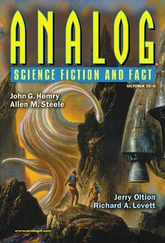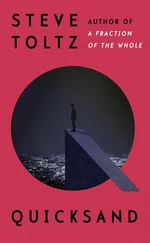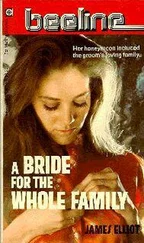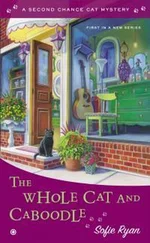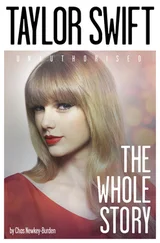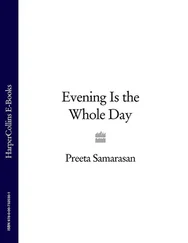“Mr. Dean, don’t you want your inheritance?”
“Did he have any money? That’s what I really need.”
“No, I’m afraid not. His bank account is empty. And everything of value would have been sold. What remains of his possessions is probably, well…”
“Worthless.”
“But worth a look, though,” he said, trying to sound positive.
“Maybe,” I said doubtfully. Anyway, I didn’t know why I was torturing this poor dope. I went ahead and signed my name. It was only later I realized I’d signed “Kasper.” He didn’t seem to notice.
“So where is this storage room?”
“Here’s the address,” he said, handing me a piece of paper. “If you’d like to go now, I could give you a lift.”
***
We drove to a lonely-looking government building stuck out near furniture warehouses and packaged food wholesalers. A guard in a little painted white cubbyhole had carte blanche on the raising and lowering of a wooden beam at the entrance to the parking lot. Gavin Love rolled the window down.
“This is Jasper Dean. He’s here to claim his father’s estate.”
“I’m not here to claim anything,” I said. “Only to give it the once-over.”
“ID,” the guard said.
I pulled out my driver’s license and handed it over. The guard examined it and tried to equate the face on the license with the face attached to my head. They weren’t a clear match, but he gave me the benefit of the doubt.
We drove to the front of the building.
“You’ll probably be awhile,” Gavin Love said.
“Don’t worry, I won’t ask you to wait.”
I got out of the car, and Gavin Love wished me luck, which he seemed to think was pretty decent of him. A small, pudgy man in a gray uniform opened the door. His pants were pulled up higher than what I deem standard practice.
“Can I help you?”
“My name’s Jasper Dean. My father’s possessions are stuffed in one of your airless rooms. I’ve come for a poke around.”
“His name?”
“Martin Dean.”
The man’s eyes widened a little, then contracted. He went into the office and came out with a large blue ledger.
“Dean, Dean…here it is, Room-”
“One-oh-one?” I asked, thinking of Orwell.
“Ninety-three,” he said. “This way.”
I followed him to an elevator. He got in with me. We didn’t have much to say to each other, so we both watched the lift numbers illuminate in turn and I saw that he mouthed each number silently. On the fourth floor we got out and walked down a long, brightly lit corridor. About halfway down he said, “Here we are,” and stopped at a door.
“There’re no numbers on these doors. How do you know this is ninety-three?”
“It’s my job to know,” he said.
That was no kind of job. He took out a set of keys and unlocked the door and pushed it ajar.
“You can close the door behind you if you want.”
“That’s OK,” I said. It didn’t look like the kind of place you want to be closed into.
The room was dark and cluttered and I couldn’t see the end of it- I imagined it stretched endlessly to the brink of existence. I couldn’t think how they’d managed to get everything in here: books, lamps, maps, photographs, furniture, empty picture frames, a portable X-ray machine, life jackets, telescopes, old cameras, bookshelves, pipes, and potato sacks filled with clothes. The space was entirely occupied by Dad’s possessions, everything jumbled up together and in complete disarray- papers on the floor, cupboard drawers emptied and turned over. Obviously the authorities had searched for clues of Dad’s whereabouts and where he had left the money. Every dusty cubic meter was occupied by Dad’s worthless junk. I felt a kind of diluted heartache navigating through the maze of bric-a-brac. None of the anxiety that he had infused each item with had ebbed away. I could smell his intense frustration everywhere. I was taken over by the delusion that I was walking around in my father’s head.
It really was a no-man’s-land. I felt I had stumbled upon undiscovered continents- for example, a large blue sketchbook had me captivated for hours. Inside there were designs and sketches for unbelievable contraptions: a homemade guillotine, a large plastic collapsible bubble worn on the head so you could smoke in airplane toilets, a question-mark-shaped coffin. I also found a box filled with thirty or forty teen romance novels as well as his unfinished autobiography, and underneath a manuscript in his handwriting entitled “Love at Lunchtime,” a nauseating story of unrequited love written for thirteen-year-old girls. I felt completely lost. I felt I was meeting a few more of his well-hidden selves for the first time. Even before the idea of writing a book about him had occurred to me, even before I had set down one line, I had seen myself as his unwilling chronicler. The only thing I was an expert on was my father. Now it seemed there was a life to him I hadn’t known. In this way he mocked me from beyond the grave.
The guard appeared in the doorway and asked, “How are you getting on in here?” I didn’t know quite how to answer the particular phrasing of that question, though I said I was getting on fine.
“I’ll leave you to it, then,” he said, and left me to it.
What was I supposed to do with all this rubbish? The journals were worth keeping, certainly. Without them, I might never prove to anyone that my life with him had been as manic as I remembered it. And not only for outsiders- for myself too. I took them and his autobiography, placed them by the door, and continued scavenging.
Underneath a moth-eaten duffel coat I found a large wooden crate, rotted away at the corners. It looked damaged by water and time. A padlock was hanging off it, and a crowbar lay on the floor. The authorities, looking for missing millions, had cracked open this crate and rummaged through it. I looked closer. On the side was some yellowing paperwork written in French, with Dad’s name and, underneath, an address in Australia.
I opened it up.
On the top was a painting. In the dim light, I couldn’t make it out at first, but when I did, I was so shocked I may even have said something like “What the-?”
It was the painting I’d painted in the chicken coop in Thailand. The painting of the disembodied face that had haunted me my whole life. The painting that had been destroyed.
My head was spinning. I looked again. It was definitely my painting. How could this be?
I lifted it up to see what was underneath. There were more paintings of the same face. That was strange. I had painted only one. Then I understood.
They weren’t my paintings. They were my mother’s!
I took a deep breath and thought it out. I remembered Dad’s green notebook, his Paris journal. Dad had bought Astrid paints, brushes, and canvases and she had become obsessed with painting. The words of his journal were etched in my mind. I recalled that he had written: Each painting a rendition of hell- she had many hells & she painted them all. But hell was just a face- and it was just the face she painted. One face. One terrible face. Painted many times.
A moment of terror stretched into a solid minute of terror and kept going. I looked again at the face; it was like a big bruise, purple and splotchy. Then I studied all the paintings carefully. It was undeniable. The lashes on the lower eyelid, curled like fingers; the nose hairs like nerve fibers; its eyes in a trancelike state; the oppressive closeness of its flattened nose; its uncomfortable gaze. It looked as if the face threatened to break out of the painting and actually come into the room. I also had the uncomfortable feeling that I could smell it- its odor poured off the canvas in waves.
Читать дальше

